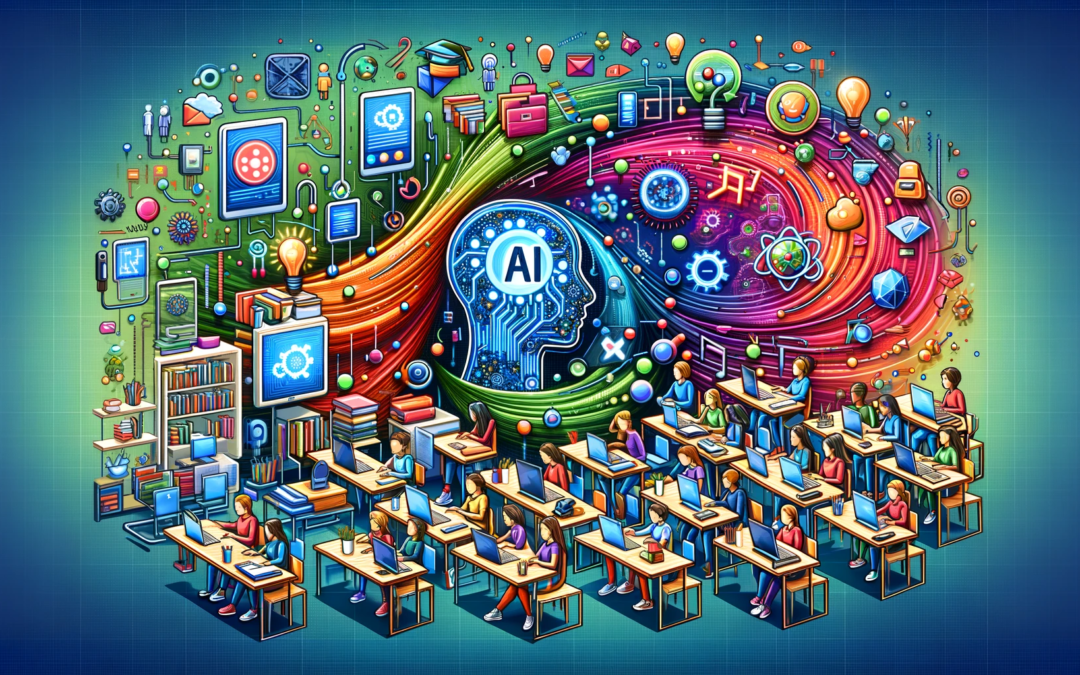Welcome to the digital era, where technology is revolutionizing every aspect of our lives, including education. One of the key drivers of this transformation is artificial intelligence (AI). In this blog post, we will explore how AI is reshaping traditional educational methods, personalizing learning experiences, and creating new opportunities for both students and educators.
AI in Personalized Learning
Gone are the days of one-size-fits-all education. With AI, learning experiences can now be tailored to meet the unique needs and preferences of individual students. AI-powered platforms and tools adapt to different learning styles and paces, ensuring that each student receives personalized attention. Imagine having a virtual tutor that understands your strengths, weaknesses, and learning patterns, guiding you through your educational journey. It’s like having a personal coach who knows exactly how to help you reach your full potential.
AI in Curriculum Development and Assessment
Curriculum development and assessment are areas where AI is making a significant impact. AI algorithms analyze vast amounts of data to identify the most effective teaching methods and content. This dynamic approach to curriculum design ensures that students receive relevant and up-to-date knowledge. Additionally, AI automates the assessment process, providing real-time feedback to students and saving educators valuable time. It’s a win-win situation for everyone involved.
AI as a Teaching Assistant
AI-powered virtual assistants and tutoring systems are changing the way students interact with educational content. These AI teaching aids can answer questions, provide explanations, and offer guidance, supplementing the role of human teachers. While there are challenges to overcome, such as ensuring the AI’s accuracy and addressing concerns about replacing human educators, the potential benefits are undeniable. With AI as a teaching assistant, students can access support whenever they need it, empowering them to become independent learners.
Impact on Accessibility and Inclusion
Education should be accessible to all, regardless of geographical location or special needs. AI is breaking down barriers and making education more inclusive. Virtual classrooms powered by AI enable students from different parts of the world to connect and learn together. AI technologies also support learners with special needs, providing personalized assistance and accommodations. By harnessing the power of AI, we can create a more equitable educational landscape.
Ethical and Privacy Considerations
As we embrace AI in education, it is crucial to address ethical implications and privacy concerns. Data handling and student surveillance are areas that require careful consideration. Striking a balance between leveraging AI’s potential and protecting student privacy is paramount. Educators and policymakers must work together to establish ethical standards and ensure transparent data practices. By doing so, we can build trust and confidence in AI-driven education.
The Future of AI in Education
Looking ahead, the future of AI in education is both exciting and uncertain. Advancements in AI technology will continue to shape the educational landscape. Will AI replace human teachers entirely? What new opportunities and challenges will arise? These are questions that we must ponder as we navigate the evolving relationship between AI and education. The key lies in embracing innovation while upholding the core values of quality education.
Engaging with the Audience
We would love to hear your thoughts and experiences with AI in education. Have you encountered AI-powered learning platforms or tutoring systems? What do you see as the potential benefits and challenges of integrating AI into learning environments? Join the conversation and share your insights in the comments section below!
Conclusion
AI is transforming education as we know it. From personalized learning experiences to dynamic curriculum development and assessment, AI is revolutionizing the way we learn. However, as we embrace these advancements, it is crucial to maintain ethical standards and ensure inclusivity. By striking the right balance, we can unlock the full potential of AI in education and create a brighter future for learners worldwide.










